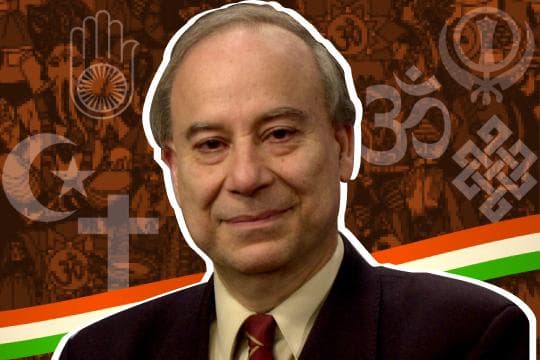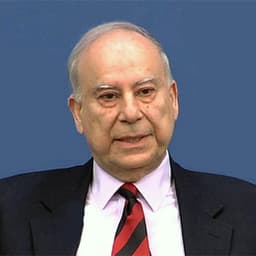India's Secret to Harmony Unveiled!
Discover how India's ancient philosophy of coexistence offers a blueprint for Western diversity and inclusion strategies.

In a world grappling with the challenges of diversity and inclusion, the rich composite culture of India offers invaluable lessons. Born in Allahabad, I have always been fascinated by how four prominent religions—Hinduism, Islam, Sikhism, and Christianity—have found a harmonious home in India. This remarkable adjustment is grounded in the Indian philosophy of all-inclusiveness, with seva (service), shanti (peace or harmony), and ahimsa (non-violence) as its core principles. Such a novel and practicable approach has not only shaped the subcontinent but also has the potential to guide Western societies in their social engineering efforts to address issues of diversity and inclusion.
The recent remark by Italian Prime Minister Giorgia Meloni that "Islam is incompatible with Europe" underscores a lack of understanding of Europe's own pluralist identity and the broader principles of inter-faith coexistence, as exemplified by India. Europe's history is replete with examples of a robust pluralist identity, contrary to the assumptions of those affiliated with the political right.
Roger II of Sicily and Frederick II of the Holy Roman Empire were monarchs who embraced the contributions of Muslims, showcasing the intertwined nature of European and Islamic civilizations. The Cappella Palatina in Palermo and the influence of the Muslim philosopher Ibn Rushd (Averroes) on European thought are testaments to this rich, shared heritage.
In addition, the story of Abbas Ibn Firnas, who experimented with human flight in Cordoba 600 years before Leonardo da Vinci, highlights the profound impact of Muslim scholars on European scientific advancement.
Yet, it is India's enduring tradition of asceticism and mysticism, exemplified by the widespread following of Sufism and the dictum suleh-e-kul (peace with all), that provides a timeless model for interfaith understanding and coexistence. This Indian way of life, celebrating diversity and fostering a spirit of inclusivity, offers critical insights for Western countries as they navigate the complexities of social diversity and strive for a more inclusive society.
The vitality of intellectual and spiritual life in Europe, as in India, stems from the compatibility and mutual enrichment among followers of different faiths and beliefs. It is imperative for leaders and policymakers in the West to recognize and embrace the lessons of history, both European and Indian, in fostering a society where pluralism and coexistence are not just tolerated but celebrated.
As someone who has dedicated his scholarship to exploring the intersections of Islam, history, civilizations, and interfaith relations, I urge figures like Ms. Meloni to delve deeper into their own history and the examples set by other cultures. My documentary, "Journey into Europe," and my academic work aim to illuminate these paths of mutual understanding and peace.
The fear that stems from being ill-informed can only be dispelled by a sincere engagement with our shared human heritage and a commitment to the principles of coexistence and mutual respect that have enriched civilizations across the globe.



































